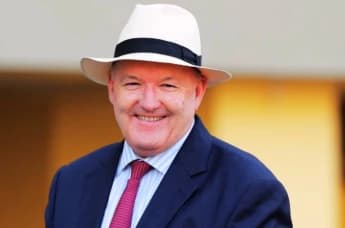Trailblazing Jockey Karen Wiltshire's Fight for Equality

"Karen Wiltshire's trailblazing journey as the first female jockey to win a British Flat race in 1978 defied challenges, paving the way for future generations of women in racing and inspiring equality in sports."
Karen Wiltshire, a pioneering female jockey from the 1970s, faced numerous obstacles both on and off the racetrack. She vividly remembers a particular race where she experienced a “sharp pain” when a competing jockey hit her with his whip, leaving a noticeable mark on her riding trousers. A trainer remarked, “They weren’t designed for women’s bodies.”
The challenges continued beyond the track. Following the race at Warwick, a male jockey intruded into her space in the changing room and attempted to assault her. Thankfully, Wiltshire's judo training from her all-girls convent school enabled her to defend herself. 'The times were different,' she recalls. 'There wasn’t much you could do, and I was reluctant to risk my career.'
In spite of the challenging circumstances, Wiltshire persevered, enduring mockery and isolation at the stables, ultimately achieving a significant milestone. At the age of 22, she made history as the first female jockey to triumph in a British Flat race, leading The Goldstone to victory at Salisbury in 1978. Her story, which encompasses her struggles against misogyny and exclusion, is now chronicled in a biography titled No Place For a Girl.
Despite the progress made by prominent female jockeys such as Hollie Doyle and Rachael Blackmore, Wiltshire believes that additional efforts are necessary to elevate the presence of women in the top races. Horse racing is still among the few sports that allow men and women to compete on a level playing field. However, during the 1970s, Wiltshire had to conceal her gender—her trainer suggested she shorten her hair and refrain from wearing makeup, in order to evade unwanted attention from both owners and competitors.
Wiltshire's historic victory, a win by two and a half lengths on The Goldstone with odds of 9-1, received little recognition. She remembers seeing just six lines in the Sporting Life newspaper covering her win—similar to any other debut victory, without acknowledging the significant milestone it marked for women in the sport. Despite achieving this win, chances remained limited, leading her to retire the following year with a modest record of 18 rides and one second-place finish.
Wiltshire is not taken aback by the recent allegations of sexism in British racing, including the suspension of jockey Robbie Dunne for harassing Bryony Frost. Last year, the British Horseracing Authority (BHA) revealed measures to enhance safety and tackle misconduct after it found that nearly half of the 350 welfare issues it looked into were related to sexual harassment or bullying.
The recent initiatives by the BHA aimed at encouraging women to remain in the sport highlight the challenges Wiltshire encountered many years ago. Although women account for three-quarters of racing school graduates, they only constitute 15% of professional jockeys.
Currently, Wiltshire operates her own gym in Hampshire, where her daughter Lara takes pride in her mother’s groundbreaking accomplishments. Looking back on her career and the significance of her victory, Wiltshire states, “That initial win demonstrated that it was achievable. Today, spectators come to watch female races, recognizing our equal abilities.”






